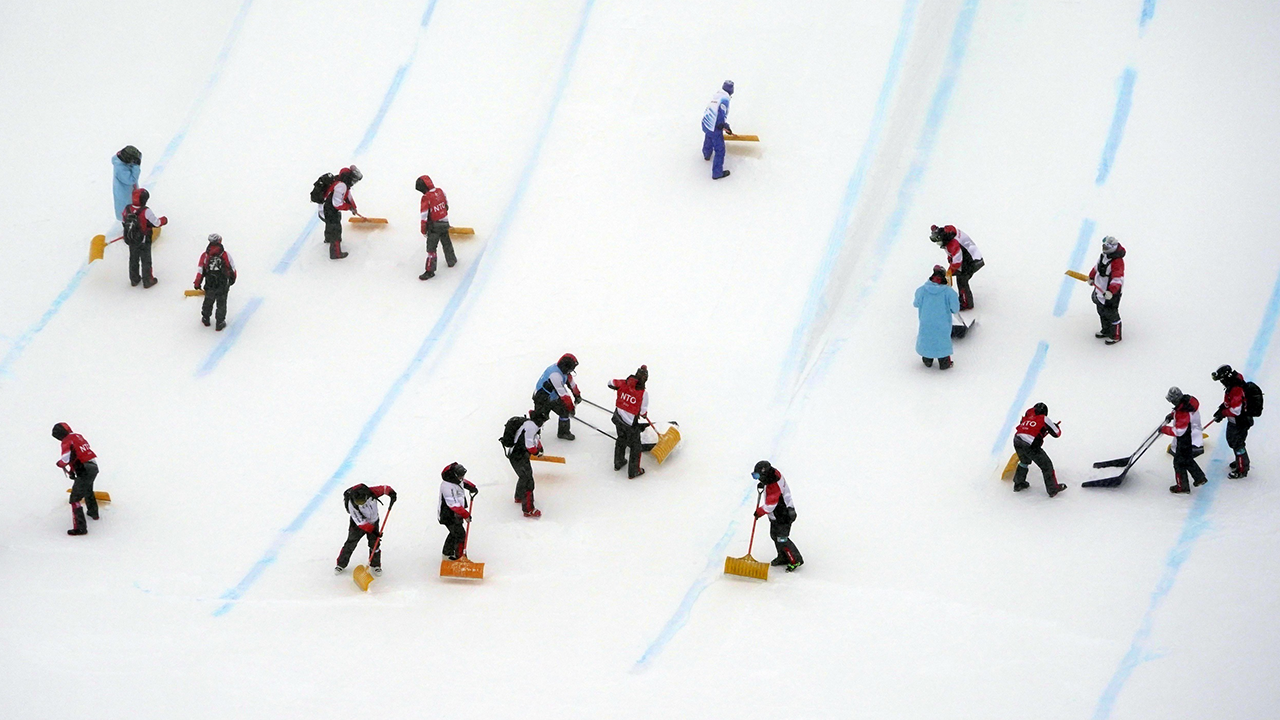In Russian figure skating, history shows it's one-and-done for stars like Kamila Valieva | Opinion

BEIJING – If 15-year-old Kamila Valieva is ruled out of the women’s figure skating competition she has been favored to win this week, the natural inclination would be to expect to see her at the next Winter Olympics in 2026 in Milan.
Odds are, that won’t happen. If history is our guide, she will not be back. A trio of current 11, 12 and 13-year-olds will replace her.
That’s women’s figure skating, particularly in Russia, specifically in the Moscow camp of Russian super-coach Eteri Tutberidze. It’s a high-stakes world of one-and-done, where young girls travel far from home to be pushed to the brink, then placed on the discard pile often well before they reach their 20th birthday.
Remember 15-year-old Julia Lipnitskaia? She was Tutberidze’s breakthrough student, the darling of the crowd in Sochi at the 2014 Olympics who helped Russia win the inaugural team gold medal, earning her an audience with President Vladimir Putin.
FOLLOW THE CHASE FOR GOLD: Never miss a moment with our Olympic newsletter
TEXT WITH US AT BEIJING OLYMPICS: Subscribe to texts, where we’ll be your official guide to the Games
MEDAL COUNT: Where Team USA ranks
Three and a half years later, she was gone at 19, retired from skating after she became anorexic, suffered leg and hip injuries and was treated for mental health issues.
As the 2018 Olympics approached, it was time for new girls to shine, and Tutberidze brought two of them to South Korea: eventual Olympic gold medalist Alina Zagitova, 15, and silver medalist Evgenia Medvedeva, 18. What a triumph that was for Tutberidze: if one didn’t win, the other was going to.
Move ahead another four years and neither Zagitova or Medvedeva was included on the Russian Figure Skating Federation’s national team for the 2021-22 season. Their time had come and gone.
In Beijing, the 47-year-old Tutberidze coaches all three of the Russian women who qualified for the Olympics: Valieva and 17-year-olds Alexandra Trusova and Anna Shcherbakova. There’s no figure skating coach on a bigger roll than Tutberidze, and now, no coach who is being scrutinized more after her student’s positive drug test for a banned heart medication that boosts endurance and fights fatigue.
The Russian Anti-Doping Agency has said it will be investigating Valieva’s entourage, which of course is led by Tutberidze, and the World Anti-Doping Agency said it too would be looking into what’s going on within Tutberidze’s team. That scrutiny will be welcome, and illuminating.
The Russians are favored to sweep the medals in the women’s competition, pending Valieva’s eligibility. As a contrast, the American women are just trying to improve on the nation’s worst Olympic finish ever: 9th, 10th and 11th at the 2018 Pyeongchang Games.
They will make the attempt with a 25-year-old (Mariah Bell), a 22-year-old (Karen Chen) and a 16-year-old (Alysa Liu).
American women consistently stick around from one Olympics to the next. Some burn out, to be sure, but longevity is not necessarily the hindrance in the United States that it is in Russia.
As she was trying to make her second Olympic team in 2018, then-26-year-old Ashley Wagner spoke about the “huge culture difference” between the USA and Russia.
American parents, she said, might be reluctant to accept that their child “is going to give up their life at 5, 6, 7 for something we don’t know if it’s going to pay off or not.”
She said her long career was due in part to not being “overloaded” with her sport, such a difference from the relatively short shelf-life of a top Russian woman.
“When you are skating that intensely from such a young age, of course these girls are going to get burned out,” said Wagner, who retired after failing to make the 2018 team and is co-hosting “Olympic Ice” on Peacock during these Games.
Rafael Arutunian, who coached Wagner, coaches Bell, and is best known for training new U.S. gold medalist Nathan Chen, is not a fan of the Tutberidze school of musical-chair champions.
“I don’t like to drink coffee from single-use plastic bags,” he told Bolshoy Sport two years ago. “It tastes different when you drink it from a China cup. It’s the same with disposable champions. I don’t like it.”